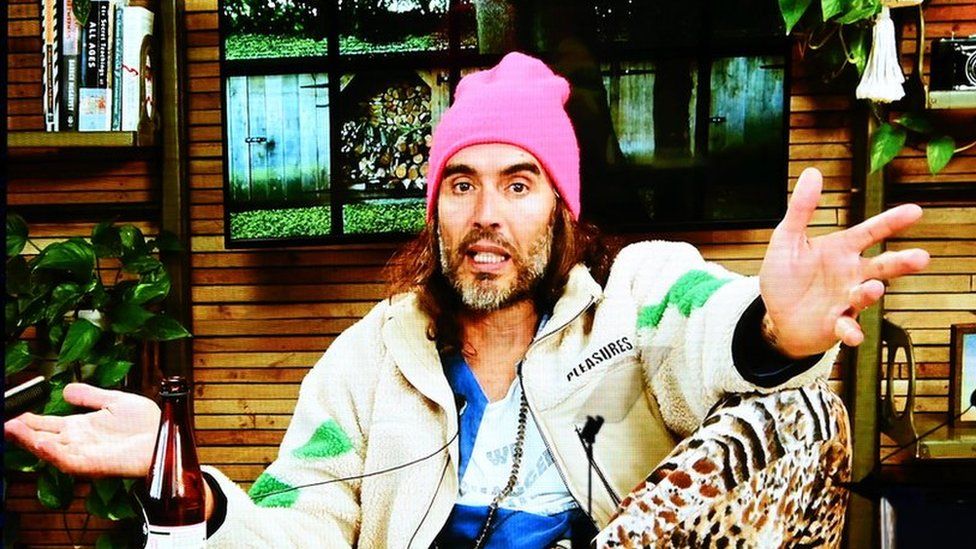 Image source, Jon Kopaloff / Getty
Image source, Jon Kopaloff / Getty
Russell Brand's YouTube channel has 6.6 million subscribers
By Paul Glynn & Tom Gerken
BBC News
YouTube has suspended Russell Brand's channels from making money from adverts for "violating" its "creator responsibility policy".
The video platform said it was taking action "to protect" its users.
It comes after the Metropolitan Police received a report of an alleged sexual assault in 2003, in the wake of allegations about the star.
Over the weekend the comedian and actor was accused of rape and sexual assaults between 2006 and 2013, which he denies.
"If a creator's off-platform behaviour harms our users, employees or ecosystem, we take action," a YouTube spokesperson said on Tuesday.
The move also comes after the remaining shows of Brand's Bipolarisation tour were postponed.
In recent years, the former TV and radio personality has repositioned himself, posting regular videosabout spirituality, anti-establishment politics and, recently, UFOs, to his 6.6 million YouTube subscribers. He also posts on Instagram, X (formerly known as Twitter) and Rumble.
Russell Brand allegations
YouTube's decision to block his revenue streams applies to "all channels that may be owned or operated" by the 48-year-old, it confirmed to the BBC.
Other channels associated with his main YouTube page include Awakening With Russell, Stay Free With Russell Brand and Football Is Nice, which have about 500,000 subscribers between them.
Sara McCorquodale, author and chief executive of social media analysis agency CORQ, estimated Brand made about £2,000 to £4,000 per YouTube video.
"He was probably making more revenue from YouTube than any other platform," she told BBC News. "Everything existed to drive people towards his YouTube channel, so that probably was a significant revenue stream that has obviously now been paused."
Russell Brand: A comedy career built on controversy
However, Rumble is still carring adverts on his content, "so his ability to make money has by no means means stopped", she said.
According to Companies House, Brand's company - called Pablo Diablo's Legitimate Business Firm Ltd - saw its net assets more than double from £2m in 2020 to £4.1 million in 2021.
YouTube's move "will have some impact", Ms McCorquodale said. "But his audience is still there. They are very passionate, they want his content, and so they're going to follow him."
She predicted that Brand could launch an "independent, subscription-based platform" instead, where his legions of fans could pay to watch his videos.
How do YouTubers make money?
There are lots of different ways for people to make money on YouTube.
One of the most obvious is through ad revenue. After gaining enough viewers, YouTubers can have ads running before and during their videos, earning varying amounts. One YouTuber with half a million subscribers recently showed the BBC they made around £10,000 from a video with 1.5 million views.
But the exact money made from videos can vary dramatically and be much lower - or even higher - than this.
Other ways of making money include channel memberships, where people subscribe to see more of your content, as well as super chat and super thanks, where a viewer can pay to have their message to the creator appear more prominently.
But the big way YouTubers make money is through sponsorships, known as "spons" in the community.
At the top of the description of all but his most recent video, in which he commented on the allegations, Brand has a prominently-placed spon. The companies include a skincare firm, a food supplement powder, a VPN and a coffee alternative.
Companies pay for prominent sponsorship on videos earning hundreds of thousands of views, and will generally pay much more for the amount of conversions - people who buy the product using the link. This could be anything from one twentieth to half the purchase price.
It's impossible to accurately estimate how much this is, as the finances are agreed on a case-by-case basis. But suffice to say, it is not uncommon for a YouTuber to make more money through spons than any other income source on the platform.
Investigation and reaction
The allegations against Brand were made in a joint investigation by the Sunday Times, the Times and Channel 4's Dispatches.
On Tuesday, the Times reported claims from two more women, including one who alleged he was threatening and verbally abusive towards her when she refused to have sex with him.
Ahead of its broadcast, Brand took to his online social media video platforms to pre-emptively deny all claims of misconduct, saying he was the subject of "a co-ordinated attack" involving "very serious allegations that I absolutely refute".
He added that his relationships had been "always consensual".
Image source, PA Media
Image caption,Brand performed at a scheduled gig at the Troubadour Wembley Park Theatre on Saturday evening. The remainder of his tour has since been postponed
On Monday, one of the women who has accused him of sexual assault when she was 16 has told BBC Radio 4's Woman's Hour his behaviour was an "open secret".
The woman, known as Alice, added that allegations against him have been "a long time coming".
Speaking for the first time since accusations became public, she said his denial was "laughable" and "insulting".
Brand still has a presence on Rumble, where he has 1.4 million followers, and he hosts a regular show every weekday, but there was notably no new episode on Monday.
Prior to his reinvention as an online guru, the comedian's traditional earnings were made through high-profile TV and radio presenting jobs, books and movie appearances, as well as his live comedy shows.
Have you been affected by the issues raised in this story? You can get in touch by emailing haveyoursay@bbc.co.uk.
Please include a contact number if you are willing to speak to a BBC journalist. You can also get in touch in the following ways:
If you are reading this page and can't see the form you will need to visit the mobile version of the BBC website to submit your question or comment or you can email us at HaveYourSay@bbc.co.uk. Please include your name, age and location with any submission.

 Movie
Movie 7 months ago
163
7 months ago
163 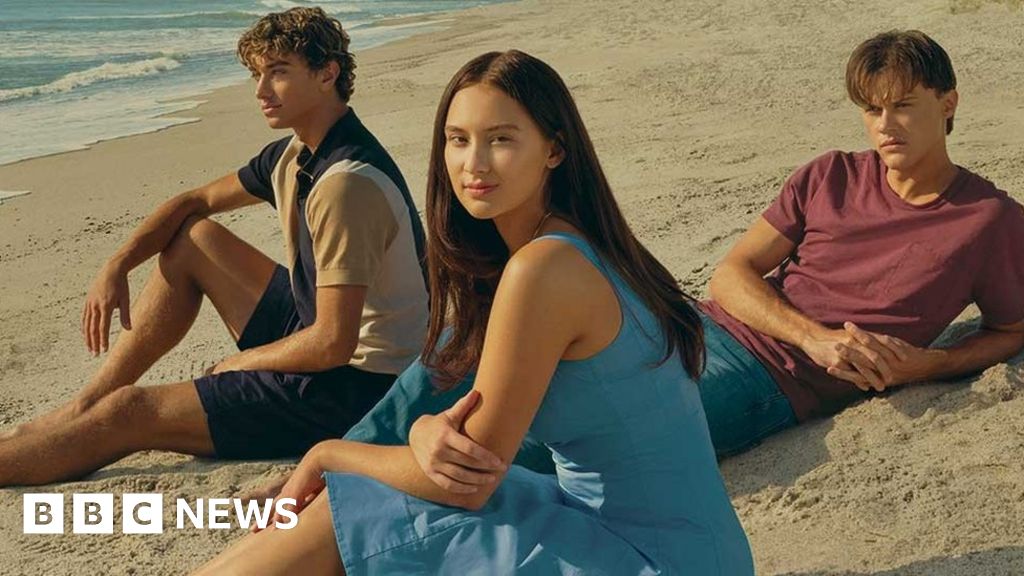
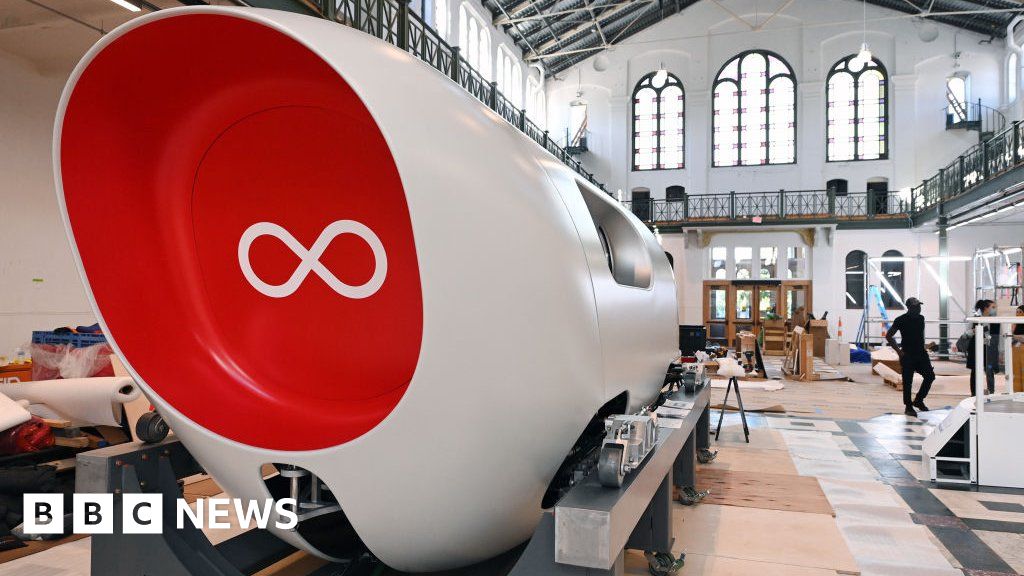
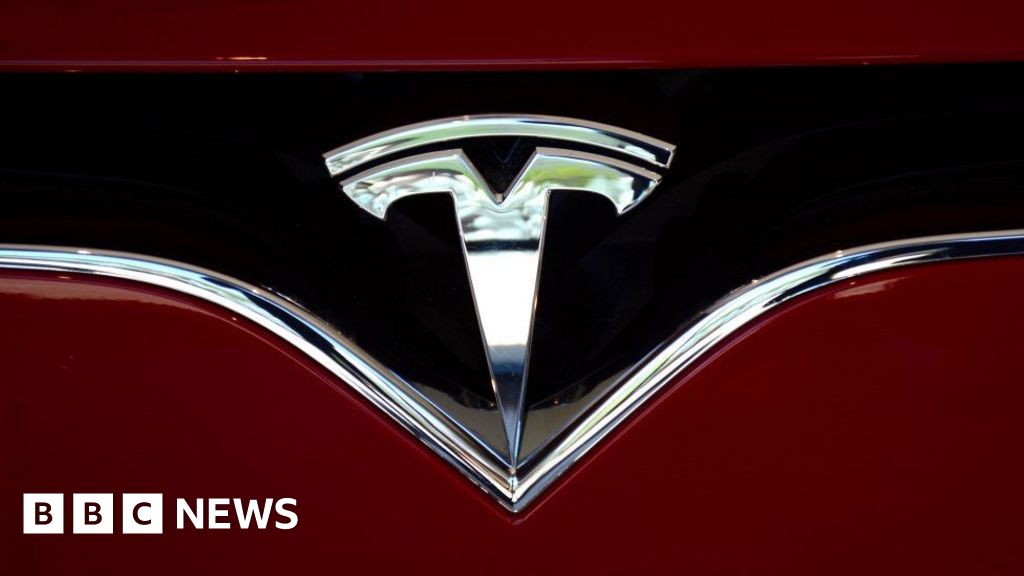
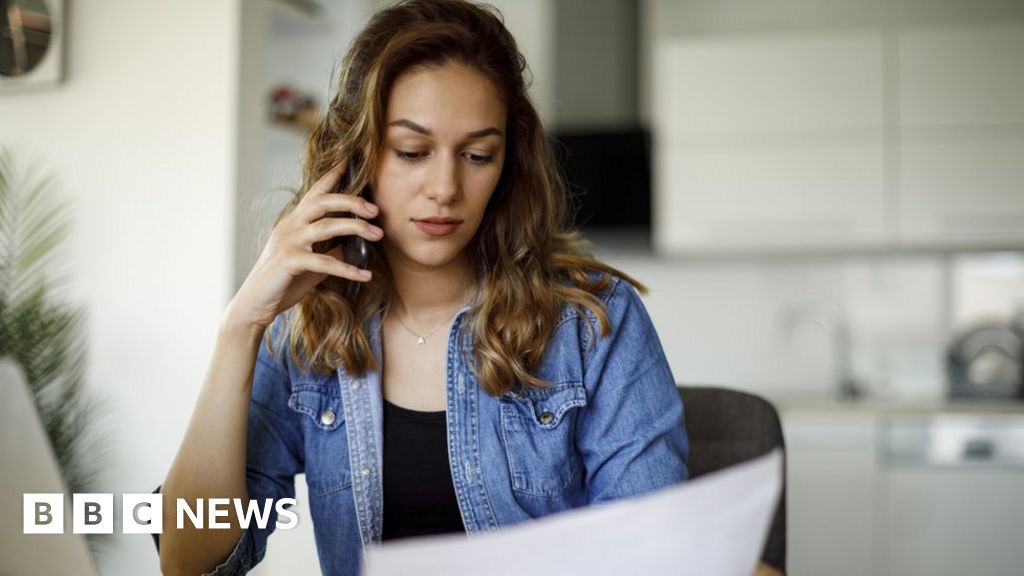

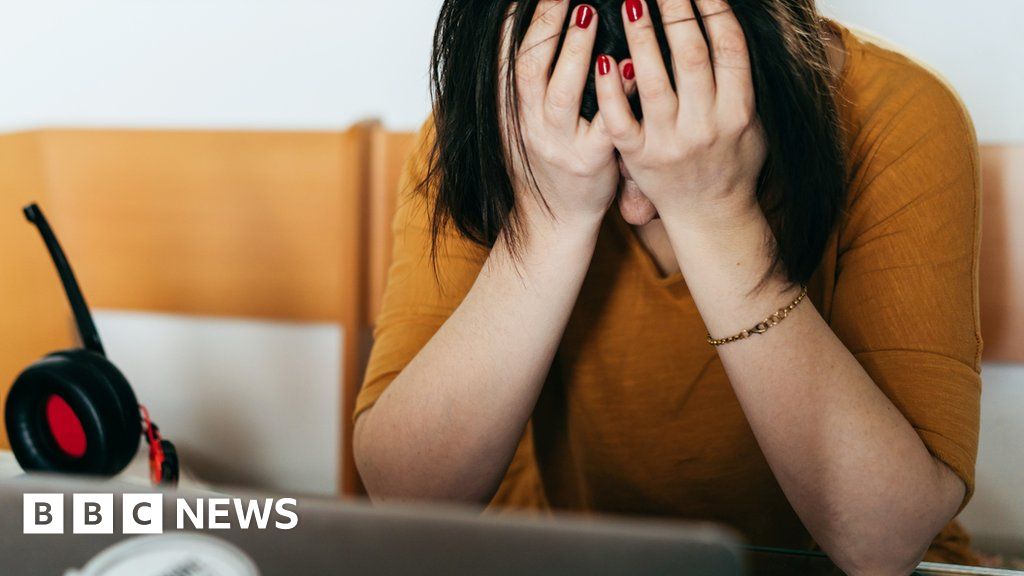

![Presidents Day Weekend Car Sales [2021 Edition] Presidents Day Weekend Car Sales [2021 Edition]](https://www.findthebestcarprice.com/wp-content/uploads/Presidents-Day-Weekend-car-sales.jpg)



 English (United States)
English (United States)